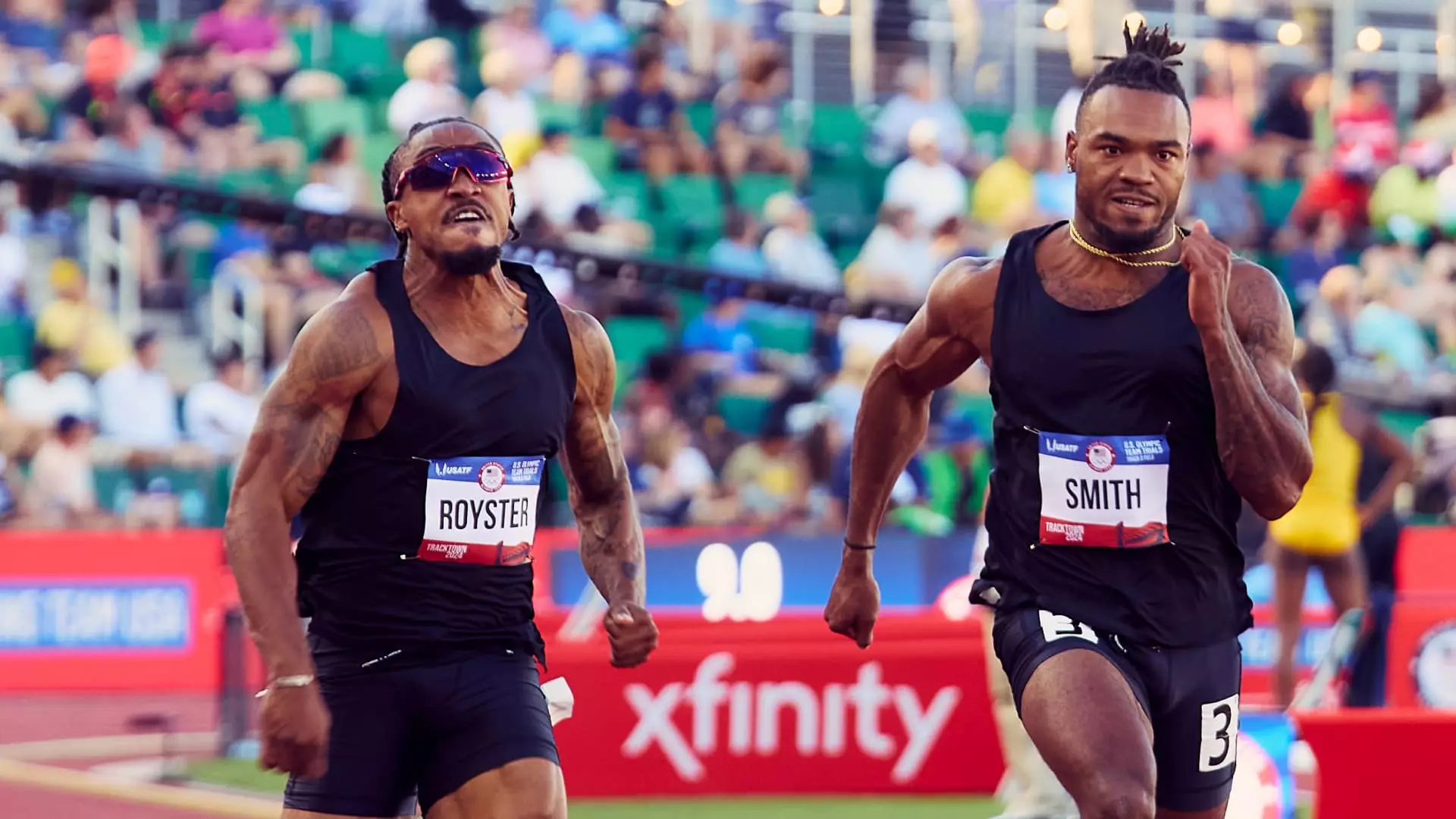The U.S. Track & Field Olympic Trials this year are witnessing a unique phenomenon – a group of 35 unsponsored athletes standing out in all-black, logo-less gear. These athletes are part of Bandit Running’s Unsponsored Project, which aims to revolutionize the traditional sponsorship model for professional athletes and support emerging competitors. In a typical scenario, unsponsored track and field athletes would have to purchase apparel from major brands, effectively becoming free advertising platforms for these companies.
Bandit Running offers these Olympic hopefuls all-black kits, warmups, and short-term endorsement deals instead of the standard sponsorship model. Co-founder Tim West shared that the company is providing at least 35 two-week deals for unsponsored runners at the trials, acknowledging the vital role this event plays in an athlete’s journey towards the U.S. Olympics. These deals include unbranded apparel, financial support, and a platform for athletes to showcase their talent. Moreover, Bandit’s agreements come with a release clause, allowing athletes to exit if they receive a traditional sponsorship offer during the trials.
The financial burden associated with competing in track and field can be overwhelming for unsponsored athletes. By investing in themselves and participating in events such as the Olympic trials, these athletes are demonstrating their commitment to their sport. Bandit’s initiative aims to bridge the gap by offering financial assistance and visibility to athletes who may not have access to traditional sponsorships. The all-black, logo-free kits worn by these athletes serve as a subtle indication of their availability for potential long-term partnerships.
Among the unsponsored athletes at the U.S. Track & Field Olympic Trials is Courtney Okolo, a 400-meter runner who previously had a sponsorship deal with Nike. Despite her past success, Okolo acknowledges the challenges of competing without a sponsor and appreciates the support provided by Bandit’s Unsponsored Project. The financial strain of training, traveling to the trials, and purchasing competition gear can be overwhelming for athletes like Okolo, highlighting the need for alternative funding sources.
Brandee Johnson, a 26-year-old track athlete who qualified for the Olympic trials, has been juggling two jobs and a side gig while pursuing her Olympic dreams. Joining the Unsponsored Project has given Johnson a sense of comfort and support, enabling her to focus on her training and performance. By aligning herself with a project that focuses on making a positive impact, Johnson feels empowered to pursue her goals and overcome financial barriers.
The presence of unsponsored athletes at the U.S. Track & Field Olympic Trials sheds light on the challenges faced by emerging competitors in the absence of traditional sponsorships. Bandit Running’s Unsponsored Project offers a new perspective on athlete support, emphasizing financial assistance, visibility, and alternative pathways to success in the world of professional sports. By reimagining the sponsorship model and providing opportunities for unsponsored athletes to thrive, Bandit Running is paving the way for a more inclusive and supportive athletic community.

